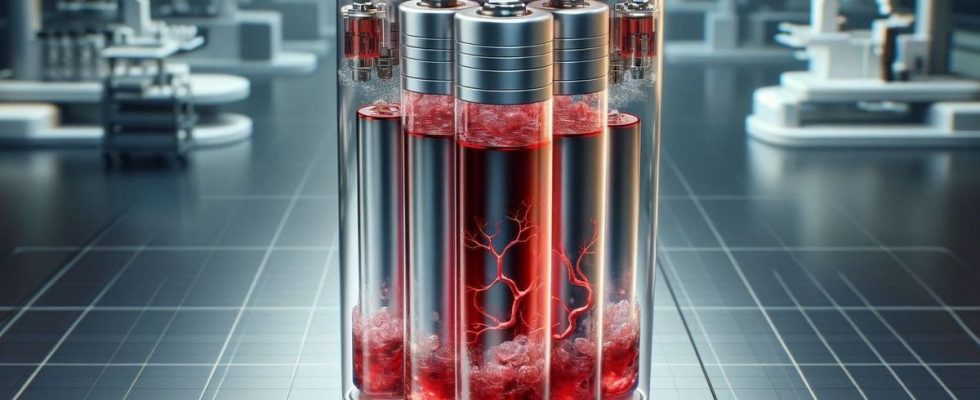Published on
Updated
Reading 1 min.
Spanish researchers have succeeded in developing a prototype battery that works partly with hemoglobin. This solution has many unsuspected advantages.
A team from the Chemical Institute for Energy and the Environment (IQUEMA) at the University of Cordoba, Spain, has developed a battery using hemoglobin as a facilitator of an electrochemical reaction.
As a reminder, hemoglobin is a protein present in red blood cells which ensures the transport of oxygen in the body. Researchers have demonstrated that hemoglobin has interesting properties in the oxidation process which generates energy in zinc-air batteries. This is how they developed the very first biocompatible battery, which therefore uses hemoglobin in an electrochemical reaction which transforms chemical energy into electrical energy.
Hemoglobin functions here as a catalyst in these batteries, facilitating the electrochemical reaction, also called the oxygen reduction reaction. This means that once air enters the battery, the oxygen is reduced and transformed into water in one part of the battery, releasing electrons which pass to the other part of the battery where the transformation then takes place. oxidation of zinc. And the first results are quite convincing since the team was able to operate its battery prototype for almost 30 days, with just 0.165 milligrams of hemoglobin.
In absolute terms, this type of battery would have numerous advantages, starting with being able to be used in extreme atmospheric conditions, where classic lithium-ion models are affected by humidity or high heat. But ultimately, the most interesting use would concern devices directly integrated into the human body, such as cardiac pacemakers. Finally, note that these batteries can only operate in the presence of oxygen and therefore could not be used in space.
This work, which is only in its infancy, has already been the subject of a publication in the journal Energy & Fuels.
